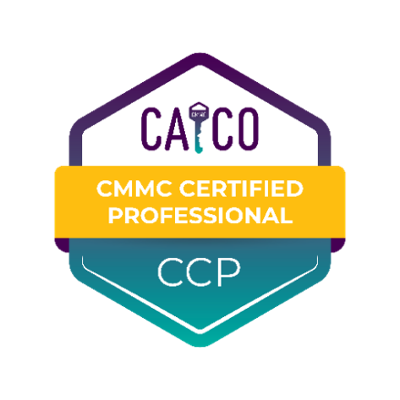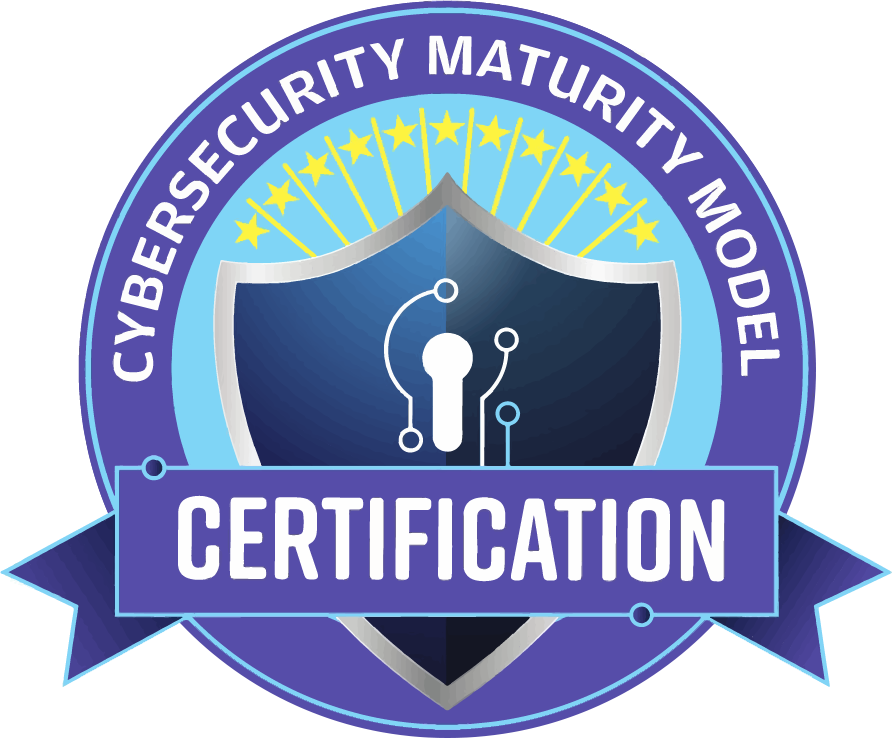Cybersecurity Maturity Model Compliance (CMMC) for West Michigan Businesses

WE'RE CMMC CERTIFIED PROFESSIONALS
WE’RE CMMC CERTIFIED PROFESSIONALS
At Cyber Harbor, our expertise in CMMC 2.0 is backed by Certified CMMC Professionals (CCPs) who are trained to guide defense contractors through the complex requirements of CMMC, DFARS, and NIST 800-171.
As recognized experts in the CMMC ecosystem, our CCP ensures that your organization is prepared for CMMC Certification, aligning security controls, policies, and IT environments to meet DoD standards.
With deep knowledge of CMMC practices and assessments, we provide strategic compliance planning, gap analysis, and audit readiness support – helping you achieve and maintain compliance while securing your DoD contracts.


The Michigan Defense Center helps Michigan contractor’s secure DoD compliance with affordable solutions and up to $22,500 in grants.


SCHEDULE A CALL
Book your expert CMMC consultation today.

CMMC 2.0
Eventually, businesses will need to CMMC compliant. Stay ahead of compliance so that you’re always protected.
The Michigan Defense Center is offering Michigan’s small and medium-sized defense contractors a comprehensive one-stop shop to DoD cybersecurity compliance to save this nation’s federal supply chain—and your business.

ITAR
We can help you become ITAR registered!
The United States government mandates that any company that manufactuers, exports, as well as brokers of defense articles, defense services, or a company that is involved with related technical data, must be ITAR compliant. ITAR is the control for the export and import of defense-related articles and services found on the United States Munitions List (USML).


BLOG
Noteworthy CMMC news in Michigan.
Why IT Companies Are Missing Out on CMMC Revenue
The demand for CMMC...
Why Michigan Manufacturers Trusts Cyber Harbor for CMMC
Achieving Cybersecurity...
CMMC 2.0 – Now Live in 2025
As of 2025,...
CMMC FAQs
What level of CMMC Compliance do we need to achieve?
The level of CMMC compliance your company needs depends on the type of information you handle:
- Level 1: Required if you only work with Federal Contract Information (FCI), which is less sensitive.
- Level 2 or 3: Required if you handle Controlled Unclassified Information (CUI), as these levels include more stringent security controls. The specific level is usually outlined in your contract or RFP from the Department of Defense (DoD). It’s critical to consult with your contracting officer or a cybersecurity expert to clarify your requirements.
What are the key steps to prepare for a CMMC audit?
To prepare for a CMMC audit, follow these steps:
- Assessment: Conduct a gap analysis to determine where your current practices fall short of the required CMMC level.
- Plan of Action: Develop a System Security Plan (SSP) and a Plan of Action and Milestones (POA&M) to address gaps.
- Implement Controls: Address the identified gaps by implementing required security measures.
- Documentation: Ensure policies, procedures, and evidence of compliance are well-documented.
- Practice: Perform mock audits to prepare staff and systems for the official evaluation. Consider partnering with a CMMC consultant to guide you through the process.
How can we affordably implement the required security controls?
Cost-effective implementation strategies include:
- Leverage Existing Tools: Use built-in security features in your current software and systems (e.g., Microsoft 365 or Google Workspace security tools).
- Prioritize Critical Areas: Focus on the most impactful security measures first, especially those required for your CMMC level.
- Seek Funding: Explore federal and state grants or small business programs to offset compliance costs.
- Third-Party Services: Consider Managed Security Service Providers (MSSPs) to outsource cybersecurity at a lower cost than building in-house expertise.
- Automation: Use automated tools for tasks like monitoring, patch management, and threat detection to reduce manual effort.
What are the penalties or risks of non-compliance?
The consequences of non-compliance can be severe:
- Contract Loss: You may be disqualified from bidding on or maintaining DoD contracts.
- Reputational Damage: Non-compliance could harm your reputation and lead to a loss of trust with clients and partners.
- Cybersecurity Breaches: Failure to implement proper controls increases your risk of data breaches, which can result in fines and legal liabilities.
- Financial Impact: Lost contracts, breach recovery costs, and legal fees can significantly impact your bottom line. Staying compliant is crucial for maintaining eligibility for federal contracts and protecting your business.
How do we ensure continuous compliance?
Maintaining compliance requires an ongoing effort:
- Regular Assessments: Conduct periodic internal audits to ensure controls remain effective and aligned with evolving CMMC standards.
- Training: Provide continuous cybersecurity training for employees to maintain awareness of threats and policies.
- System Monitoring: Use tools for real-time monitoring of your IT environment to quickly detect and respond to issues.
- Updates: Keep software, hardware, and documentation up to date to reflect changes in your systems or CMMC requirements.
- Partnerships: Work with a Managed Security Service Provider (MSSP) or consultant for ongoing compliance support. Preparing for annual re-assessments is key to staying ahead of requirements and avoiding disruptions.
